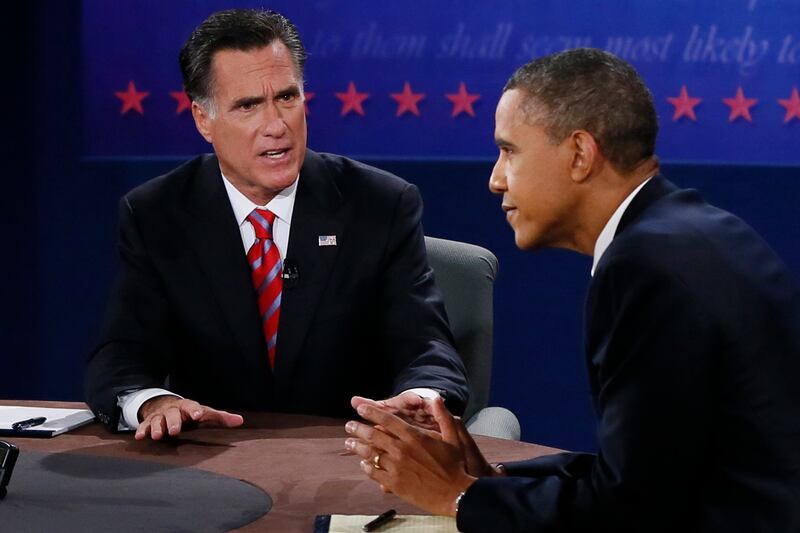Barack Obama came into the presidency with a conviction that he understood the world, the world understood him, and it was a perfect match destined to create a new era. His June 2009 speech in Cairo was a well-articulated vision of the world:
“I have come here to seek a new beginning between the United States and Muslims around the world; one based upon mutual interest and mutual respect; and one based upon the truth that America and Islam are not exclusive, and need not be in competition. Instead, they overlap, and share common principles—principles of justice and progress; tolerance and the dignity of all human beings."

Five years later, those words read like a naive dissertation of an idealistic grad student with a “Visualize World Peace” bumper sticker. The US Embassy in Cairo from which Obama prepared the final draft of the speech had been assaulted, the black flag of al Qaeda hoisted above its walls. American-Egyptian relations are in shambles. Not far away in Libya, a US Ambassador was attacked on sovereign US property and murdered by Islamic extremists. More Americans have died in Afghanistan under Barack Obama than under President Bush. Syria is a slaughterhouse. When the Green Revolution of Iran was desperate for support, Barack Obama, so eager to talk in Cairo, was silent. Is there any reason to believe that America has gained in influence or respect in the Muslim world?
ADVERTISEMENT
Any criticism of this overwhelming failed vision is dismissed with the sneering accusation that the critic must favor another land war in the Mideast. Like an aging fast ball pitcher with fading powers, the president invariably tries to dial up the heat that got him to the White House: I am not George W. Bush. In that perfect season, it's always midnight in Grant Park and the future stretches out lush with promised greatness.
To the president who assumed the force of his personal story could seduce radical Muslims into liking America, the notion that Russia might seriously threaten US interests must have seemed a distraction at odds with his historical mission. He was elected to sooth the wounds of the Bush era and make clear to Muslims that they had nothing to fear from the US. Look how the Germans reacted when candidate Obama went to Branderburg Gate. Europeans loved him and Putin desperately wanted Europe's approval. Didn't he?
So when Mitt Romney had the following exchange with Wolf Blitzer, it triggered a gleeful bout of sniggering from the White House:
ROMNEY: Russia...is, without question, our number one geopolitical foe. They fight every cause for the world's worst actors.
BLITZER: But you think Russia is a bigger foe right now than, let's say, Iran or China or North Korea? Is that—is that what you're suggesting, Governor?
ROMNEY: Well, I'm saying in terms of a geopolitical opponent, the nation that lines up with the world's worst actors. Of course, the greatest threat that the world faces is a nuclear Iran. A nuclear North Korea is already troubling enough.
"The 1980's are calling and want their foreign policy back," Obama mocked in the third Presidential debate, "the Cold War's been over for 20 years." His phrasing is telling. To the president who sees the world through popular culture, there is no greater damnation than the charge of being outdated. That anything—an idea, a fashion, a value—has been "over for 20 years" is to this president the ultimate insult. "You're still listening to that band?"
Of course Romney was as right as Obama was wrong. As the Washington Post editorialized, "For five years, President Obama has led a foreign policy based more on how he thinks the world should operate than on reality."
The irony is that the president, with smug condescension, is quick to attack others for being out of touch with reality. It's not enough to be wrong on climate change; it makes you a "member of the flat earth society."
But it's this president who has lived in a fantasy world. He announced the end of the war on terror. The terrorists replied by killing a US Ambassador. He announced the Cold War terribly out of date. Putin responded by invading Ukraine. He announced in his 2012 State of the Union address that Syrian President Assad "will soon discover that the forces of change cannot be reversed, and that human dignity cannot be denied." Assad responded with chemical weapons and barrel bombs dropped on playgrounds.
Language matters. The phrases President Obama employed to warn Assad were as if he were describing some great social justice movement. "The forces of change cannot be reversed" may be moving rhetoric when depicting women's suffrage or civil rights, but it's dangerous and naive when applied to dictators with killing machines. The Assads and Putins are not fighting change they are pursuing change driven by a view of the world that Barack Obama doesn't seem able to grasp.
In the sweep of Russian history, 20 years is not very long. Vladimir Putin clearly has a vision of Russia's role in the world. Now it's up to our president to articulate his vision and, like Putin, act accordingly.






